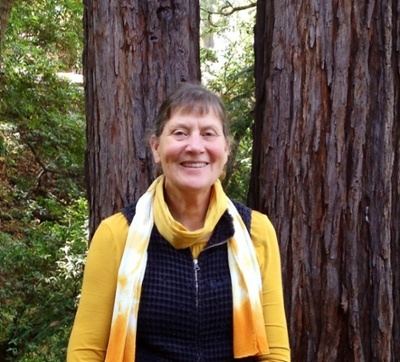An Interview with Charlea Massion, M.D.
By Joanne Guzman, Marketing Manager, Hospice of Santa Cruz County
Hospice of Santa Cruz County is pleased to welcome our new Chief Medical Director, Dr. Charlea Massion. As a board certified hospice and palliative care physician and a member of the palliative care team at Dominican Hospital, Dr. Massion brings expertise and a deep caring to her role of leading HSCC’s medical team.
I recently sat down with Doctor Massion to talk about her hospice work and how she arrived here at HSCC.

1. What brought you to end of life care work?
“It was the natural evolution in my career as a family physician. I trained in family medicine and held a primary care position in an office based practice for over 25 years. During that time, the role of the family physician it became more and more circumscribed. The scope of the work shrunk. I decided to become a hospitalist. I was a full time hospitalist for 6 years. While working as a hospitalist, I saw many, many patients at the end of their lives. I often saw the suffering that they and their families had and became interested at that time. As a hospitalist, I was able to consult the inpatient palliative care team and see how they were able to help patients and their families. I decided what I wanted to do and trained in palliative care. I passed the Board certification for hospice and palliative medicine in 2012. That’s the work I really wanted to do, I didn’t know whether I could stay in Santa Cruz and I was very happy about staying in my home community.”
2. Why is this work meaningful to you?
“As a family practitioner, I was always interested in family dynamics and communications. At the end of life family communication is amplified; sometimes to the difficult and sometimes to the loving and peaceful side. It’s a time where it’s possible for families to come together and find new strength. By families, I mean anyone who loves that person – extended family. Sometimes there are unexpected opportunities to resolve difficulties and they can come to a new understanding of what’s important. Having an opportunity to support that process is very meaningful to me.”
3. Is there something you would you ask patients to better understand them?
“What is most important to you at this time in your life?”
4. And if someone were to ask you what brings you joy, how would you answer?
“I’m not sure I could say one thing. Work is very central to me, I feel very happy and honored to do this work. Feeling the lifecycle in my own life as a physician, I started out taking care of babies and children and their mothers, the whole family. Now working with patients at the end of their life, I’m bringing the skills of over 30 years working in medicine to my work every day.
In addition to my work here the things most important to me are my friends and my family. I’m also very passionate about women’s health. I’m on the Board of National Women’s Health based in Washington, D.C., it’s another opportunity for me to support the growth of healthcare.
I feel that hospice and palliative medicine is coming into its own. It’s been in healthcare system for many years and I feel it’s becoming more and more appreciated and mainstream medicine. I’m glad to see it and to be a part of bringing it to families and physicians and our community.”
Welcome Doctor Massion!
